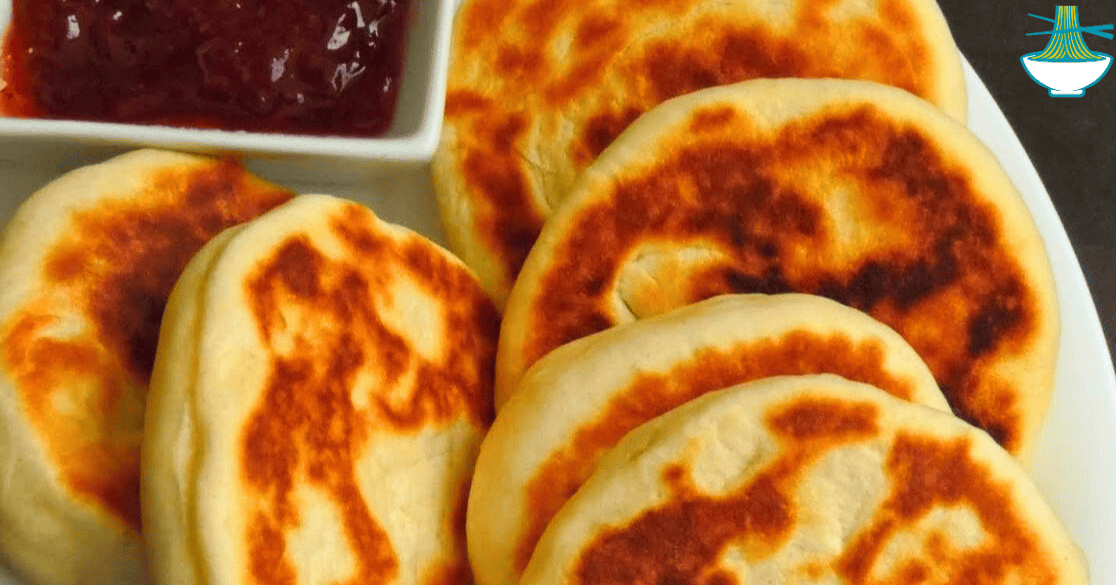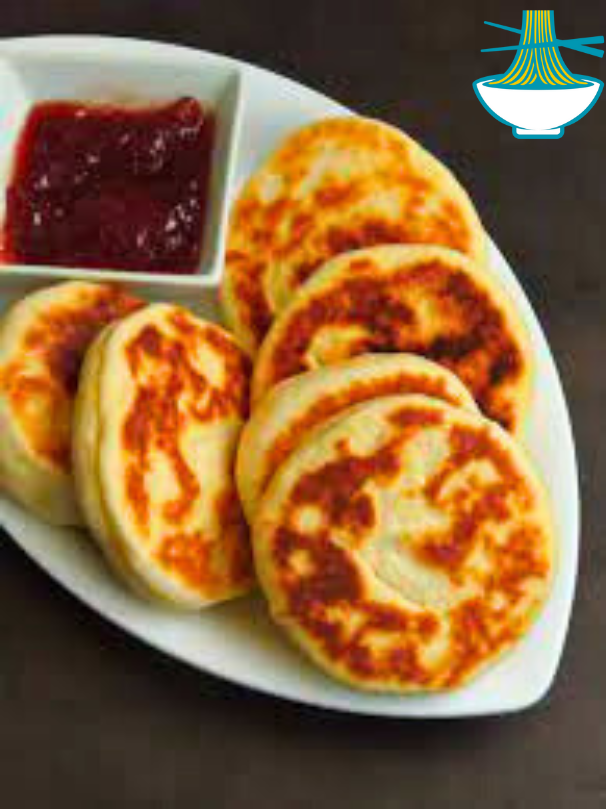Diphaphatha is a beloved traditional flatbread from Botswana, known for its simplicity and nutritional value. Made primarily from sorghum flour, this gluten-free bread is a staple in Botswana, particularly in rural communities. The dish combines ease of preparation with a satisfying flavor profile, featuring a crispy exterior and a soft, slightly nutty interior.

Originating from Botswana, Diphaphatha has been enjoyed by generations as a versatile accompaniment to various meals. Sorghum, a staple grain in Africa, is central to this dish, highlighting the region's rich agricultural heritage. Traditionally, Diphaphatha is served with hearty stews, enhancing its role as a key component of Botswana's culinary tradition.
Ingredients:
- 2 cups sorghum flour
- 1 tsp salt
- 1 tsp baking powder
- 1 cup water
- 1 tbsp oil (for cooking)
Instructions:
1. In a large bowl, mix the sorghum flour, salt, and baking powder.
2. Gradually add water to the mixture, stirring until a soft dough forms.
3. Knead the dough on a floured surface for a few minutes until smooth.
4. Divide the dough into 6-8 equal pieces.
5. Roll out each piece into thin, flat circles.
6. Heat a non-stick frying pan over medium heat and lightly brush with oil.
7. Cook each dough circle for a few minutes on each side until golden brown.
8. Remove from the pan and place on a plate.
9. Repeat with the remaining dough.
Serving Suggestions:
Diphaphatha pairs excellently with beef or chicken stew, adding a delightful texture contrast to the savory dishes. It can also be enjoyed on its own or with various other accompaniments.
Nutritional Benefits:
Sorghum flour provides a good source of fiber, protein, iron, and magnesium. It is low in fat and calories, making it a healthy option for those managing their weight or seeking gluten-free alternatives.
Notes:
- Diphaphatha can be enjoyed warm or at room temperature.
- For a different taste, sorghum flour can be substituted with other flours like wheat flour or maize meal, though this will alter the traditional flavor and texture.

Nutrition Value:
1. Sorghum Flour (2 cups)
- Calories: Approximately 560 kcal
- Carbohydrates: 120 g
- Protein: 16 g
- Fat: 2 g
- Sodium: 0 mg
- Cholesterol: 0 mg
- Vitamins: Rich in B vitamins, including niacin and vitamin B6
- Minerals: High in iron, magnesium, phosphorus, and potassium
Nutritional Benefit: Sorghum flour is a nutrient-dense ingredient, providing significant amounts of fiber and essential minerals. It supports digestive health, maintains bone health due to its mineral content, and offers energy through complex carbohydrates.
2. Salt (1 tsp)
- Calories: 0 kcal
- Carbohydrates: 0 g
- Protein: 0 g
- Fat: 0 g
- Sodium: 2300 mg
- Cholesterol: 0 mg
- Vitamins: None
- Minerals: Sodium
Nutritional Benefit: Salt is primarily used for flavoring and enhancing the taste of dishes. While it provides essential sodium needed for fluid balance and nerve function, excessive consumption can contribute to high blood pressure and other health issues.
3. Baking Powder (1 tsp)
- Calories: 1 kcal
- Carbohydrates: 0.5 g
- Protein: 0 g
- Fat: 0 g
- Sodium: 300 mg
- Cholesterol: 0 mg
- Vitamins: None
- Minerals: Sodium, potassium
Nutritional Benefit: Baking powder acts as a leavening agent, helping the dough rise and become fluffy. While it contributes minimal calories and nutrients, it is crucial for achieving the desired texture in baked goods.
4. Water (1 cup)
- Calories: 0 kcal
- Carbohydrates: 0 g
- Protein: 0 g
- Fat: 0 g
- Sodium: 0 mg
- Cholesterol: 0 mg
- Vitamins: None
- Minerals: Trace amounts depending on source
Nutritional Benefit: Water is essential for hydration, digestion, and maintaining overall bodily functions. It helps in the formation of the dough and aids in the absorption of nutrients during digestion.
5. Oil (1 tbsp, for cooking)
- Calories: 120 kcal
- Carbohydrates: 0 g
- Protein: 0 g
- Fat: 14 g
- Sodium: 0 mg
- Cholesterol: 0 mg
- Vitamins: Provides vitamin E (depending on the type of oil)
- Minerals: None
Nutritional Benefit: Oil adds moisture and flavor to the dish. It provides healthy fats essential for energy and the absorption of fat-soluble vitamins. The type of oil used can influence the dish’s nutritional profile, with some oils offering additional health benefits.


Comments